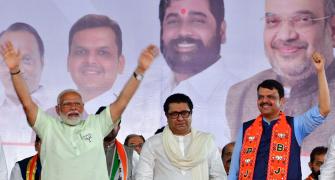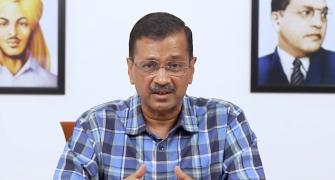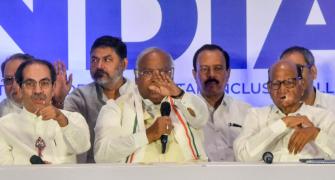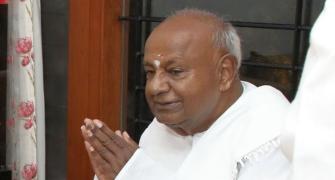Every drop of it is precious. Which is why you ensure zero on the display of the fuel gauge at a filling station. You also ensure that even the last drop of fuel goes into the tank. Smart enough.
Then you hit the roads... frequently shifting gears, abruptly braking and stamping on the accelerator at traffic junctions.
This is where one turns foolhardy: you are wasting fuel after taking the trouble of ensuring that it is filled to the last drop.
According to a study by the Petroleum Conservation Research Association, over-speeding, rash and rough driving, sudden acceleration, jack-rabbit starting, violent and sudden braking, shifting gears without double de-clutching, improper gear selection, clutch riding result in major fuel loss.
"Our studies show that good driving habits can save a lot of fuel. Up to 30 per cent of diesel can be conserved if the drivers are trained," R K Gupta, chief regional co-ordinatior of the association, said.
"We organise training programmes for drivers of government-owned transport undertakings regularly. We can save millions of litres of fuel if the drivers are a little more careful," he said.
The association said the fuel consumption in heavy commercial vehicles is the lowest around speeds of 50 kmph.
The fuel usage goes up by about 7.5 per cent at 60 kmph, about 22 per cent more at 70 kmph, 40 per cent more at 80 kmph and 63 per cent more at 90 kmph.
"Drivers from different parts of the country have different habits. While some slow down on empty highways, others choose to speed up even on busy roads, braking abruptly. Both waste fuel," HPCL deputy general manager Deepak Barot said.
"We organise oil conservation programmes and give tips to drivers. City drivers are more aware and tend to save on fuel, while rural drivers need more training," he said.
"Of course, road conditions and overloading also contribute to fuel wastage," Barot added.
"There are intensive efforts to make drivers of state-owned public transport utilities aware of fuel conservation. Many undertakings, including the Railways, have their own cells to train the drivers. Most of the BEST buses in Mumbai have a sticker affixed on their windscreen, reminding the driver of the expected mileage of 3.5 km per litre of diesel," Barot said.
However, drivers working for unorganised small fleet owners are still rustic. Often, the fleet owners are averse to the idea of properly maintaining their vehicles and using genuine spares.
"Many of them go for fake spares. This hampers fuel efficiency and the vehicle's life. Also, adulterated fuel damages vehicle parts," Barot said.
Drivers of public sector transport utilities are very serious on saving fuel, says Srikrishna Lange, a driver of the Navi Mumbai Municipal Transport undertaking.
"We switch off the engine at traffic intersections and ensure proper maintenance of the vehicle. Traffic congestions are, however, a major drain on the fuel," he said.
However, another driver of the undertaking is not sure how important is the proper use of clutch in saving fuel.
Most drivers and vehicle owners are not aware of the roles the tyres play in improving fuel efficiency. The association said under-inflated tyres increase rolling resistance and leads to higher fuel consumption.
Tests show that a 25 per cent decrease in tyre pressure can cost 5-10 per cent more on petrol and 25 per cent on tyre life. The association also recommends use of radial tyres for 3-7 per cent fuel economy, longer tyre life and greater riding comfort.
A youth behind the steering is always a drain on fuel. Studies show that slow and steady wins the race, at least in terms of fuel consumption.
According to the association, tests have shown that up to 40 per cent extra mileage can be achieved at 45-55 km per hour against 80 km an hour.
Using the clutch as a footrest is a fuel-wasting habit common among drivers. Ideally, clutch should be used only while changing gears. Riding the clutch can causes loss of energy and damages clutch linings.
Ensure that the car battery is properly charged and the starter motor is in good condition to quickly start the vehicle after switching it off at junctions. While global powers are on the hunt for alternative fuels, isn't it a good idea to conserve what we have?







